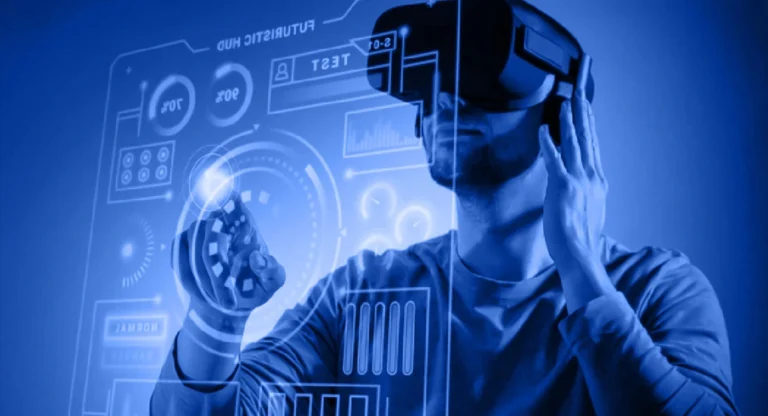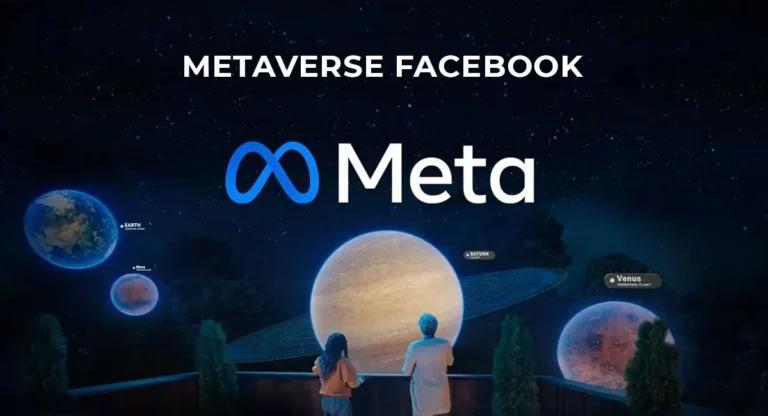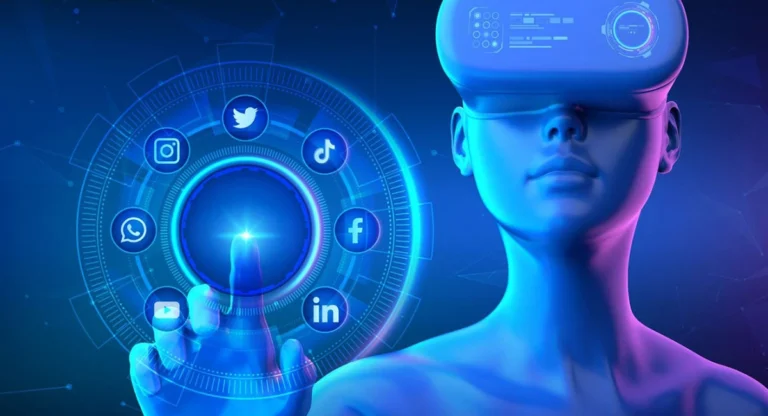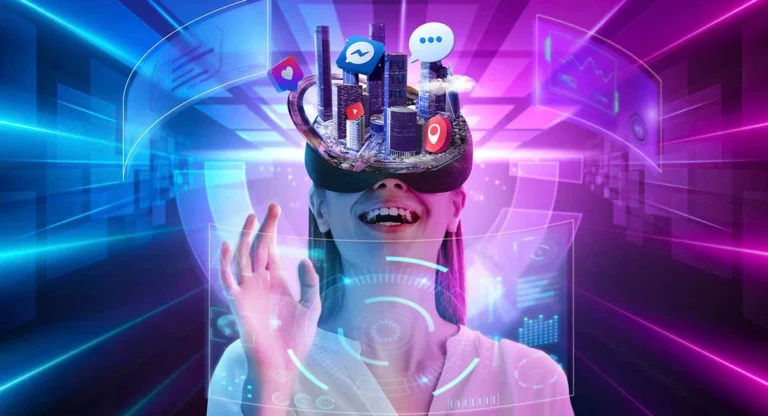In 2025, the evolution of social media marketing will be heavily influenced by the metaverse—a collective virtual shared space created by the convergence of virtually enhanced physical reality and persistent digital spaces. With tech giants like Facebook Metaverse leading the charge, the metaverse meaning extends beyond a mere concept, transforming the way brands engage with users. From immersive virtual experiences to innovative social media advertising strategies, the metaverse social networking revolution is set to reshape how businesses interact with their audience. In this post, we will explore how metaverse marketing will play a crucial role in the future of social media in the metaverse and the opportunities it offers to brands.
Table of Contents
Before delving into how the metaverse is reshaping social media marketing, it’s essential to first understand its meaning. The metaverse refers to a 3D virtual universe composed of interconnected digital spaces where users can interact, socialize, play games, shop, work, and experience life in entirely new ways. This environment is powered by technologies such as augmented reality (AR), virtual reality (VR), blockchain, and advanced AI.
In the context of social media, the metaverse takes social media advertising to an entirely new level. Instead of traditional flat, 2D posts and ads, brands will be able to create immersive, interactive experiences where users engage in virtual worlds. As a result, marketing strategies will become more dynamic, personalized, and experiential.

The arrival of Facebook Metaverse (now known as Meta) is one of the most significant advancements in the digital marketing landscape. Meta’s vision for the metaverse is to create a seamless virtual world that integrates social interaction, business, gaming, and even education.This makes it an essential space for any social media ad agency aiming to stay relevant in a rapidly changing market.
In 2025, Facebook Metaverse is expected to be a central hub for brands and consumers alike. Meta plans to incorporate various metaverse social media elements into its existing platforms, allowing businesses to create branded virtual experiences that users can explore and interact with. Imagine entering a virtual storefront, trying out products in AR, and engaging with other customers in real-time—all while receiving personalized ads and offers tailored to your preferences.
This shift towards the metaverse will provide advertisers with new opportunities to engage users in ways that were once unimaginable. For example, instead of simply seeing an ad on a feed, consumers may walk through a virtual store, attend a product launch in a metaverse space, or participate in a brand-hosted event.

Metaverse marketing will be one of the most crucial components of social media advertising in the coming years. Traditional forms of advertising, such as banner ads, display ads, or even sponsored posts, will gradually give way to more immersive experiences. In the metaverse, brands will have the ability to design virtual products, immersive brand activations, and even entire worlds dedicated to their brand.
Some key aspects of metaverse marketing include:

Brands can create virtual spaces where customers can explore products, watch demos, and even make purchases—all in a fully immersive environment. This is especially important for industries like fashion, beauty, real estate, and automotive, where customers want to see and experience products before making a decision.
Hosting live events in the metaverse, such as concerts, fashion shows, product launches, or experiential activations, allows brands to engage with their audience in a more meaningful and memorable way. For example, a music festival hosted in the metaverse could feature exclusive brand sponsorships, interactive product displays, and VIP experiences for virtual attendees.
Brands are already beginning to embrace blockchain technology to sell virtual goods like NFTs (Non-Fungible Tokens) or exclusive digital merchandise. By offering limited-edition virtual items, businesses can generate a sense of exclusivity and drive engagement from their audience.
The rise of virtual influencers and avatars in the metaverse social networking landscape opens up new possibilities for influencer marketing. Brands can partner with virtual influencers or host in-game brand activations with real-world influencers who represent their products in a digital space.
As we look to the future of social media, the future of social media in the metaverse appears to be both exciting and transformative. In 2025, it is expected that the metaverse will become a central hub for all forms of social interaction. Instead of just scrolling through posts, users will immerse themselves in vibrant digital environments where they can work, shop, learn, and interact with friends in 3D spaces.
Social media platforms will no longer be limited to screens but will expand to virtual worlds where users can interact through avatars, purchase digital goods, and engage with brands in completely new ways. This evolution will drastically change how businesses communicate with their audiences. The metaverse offers brands the ability to foster deeper relationships with their customers, offering tailored, one-on-one interactions and personalized experiences at scale.

The rise of metaverse social networking will change the way users interact with each other online. Traditional social media platforms like Facebook, Instagram, and Twitter have given way to a more superficial form of interaction—users like, comment, and share posts, but there’s no real sense of presence. However, the metaverse will bring a new sense of physicality to these interactions. Users will be able to meet, communicate, collaborate, and even work in virtual environments, making social media a more immersive and interconnected experience.
In this context, metaverse social media will focus not just on sharing content but on creating lasting social connections. Brands will have the opportunity to build communities in the metaverse where customers can bond over shared interests, experiences, and products.
One of the most significant challenges in the metaverse social media ecosystem will be ensuring that social media advertising is integrated seamlessly into these immersive environments. Traditional forms of advertising, such as display ads and sponsored content, will need to adapt to the new virtual landscape.
Brands will need to prioritize user experience, ensuring that ads are not disruptive but rather integrated naturally into the metaverse environment. This means creating interactive, engaging, and relevant ads that users actually want to experience. Whether it’s a virtual product placement in a video game or a branded item in a user’s virtual closet, advertisers will need to adopt a more subtle and contextual approach to marketing in the metaverse.

The metaverse is more than just a buzzword—it is quickly becoming a powerful force in shaping the future of social media marketing. As we approach 2025, businesses must be prepared to embrace the metaverse marketing revolution. With platforms like Facebook Metaverse and a growing number of virtual worlds and immersive experiences, the opportunities for brands to engage with consumers are limitless.
From virtual stores and branded experiences to social networking and advertising, the metaverse offers unparalleled potential for creativity, engagement, and growth. As this digital ecosystem continues to expand, the future of social media in the metaverse will be defined by a blend of immersive storytelling, advanced technology, and dynamic brand interactions. Brands that innovate and adapt will thrive in the metaverse social networking space and gain a competitive edge in the rapidly evolving world of social media advertising.
As we step into this new era, one thing is clear: the metaverse meaning in the context of social media is not just about virtual worlds; it’s about creating meaningful, engaging, and immersive brand experiences that will shape the next generation of marketing.
Nirbhay Chauhan is a Performance Marketing and ROI Specialist with expertise in SEO, PPC, and media planning. With a passion for data-driven strategies, Nirbhay helps businesses scale by optimizing their marketing efforts to deliver measurable results. His extensive experience in driving online growth and maximizing ROI makes him a trusted partner for businesses looking to elevate their digital presence.